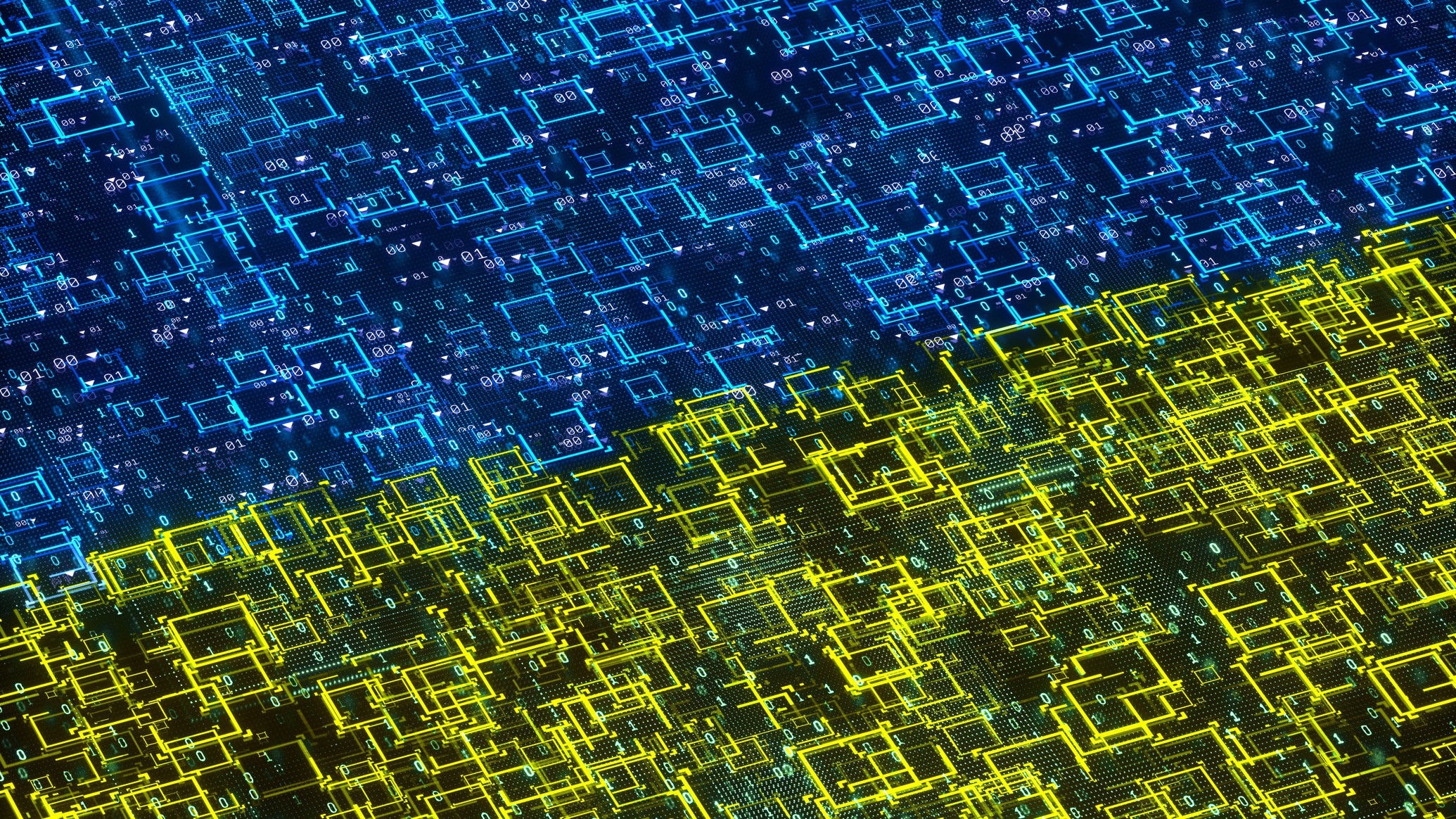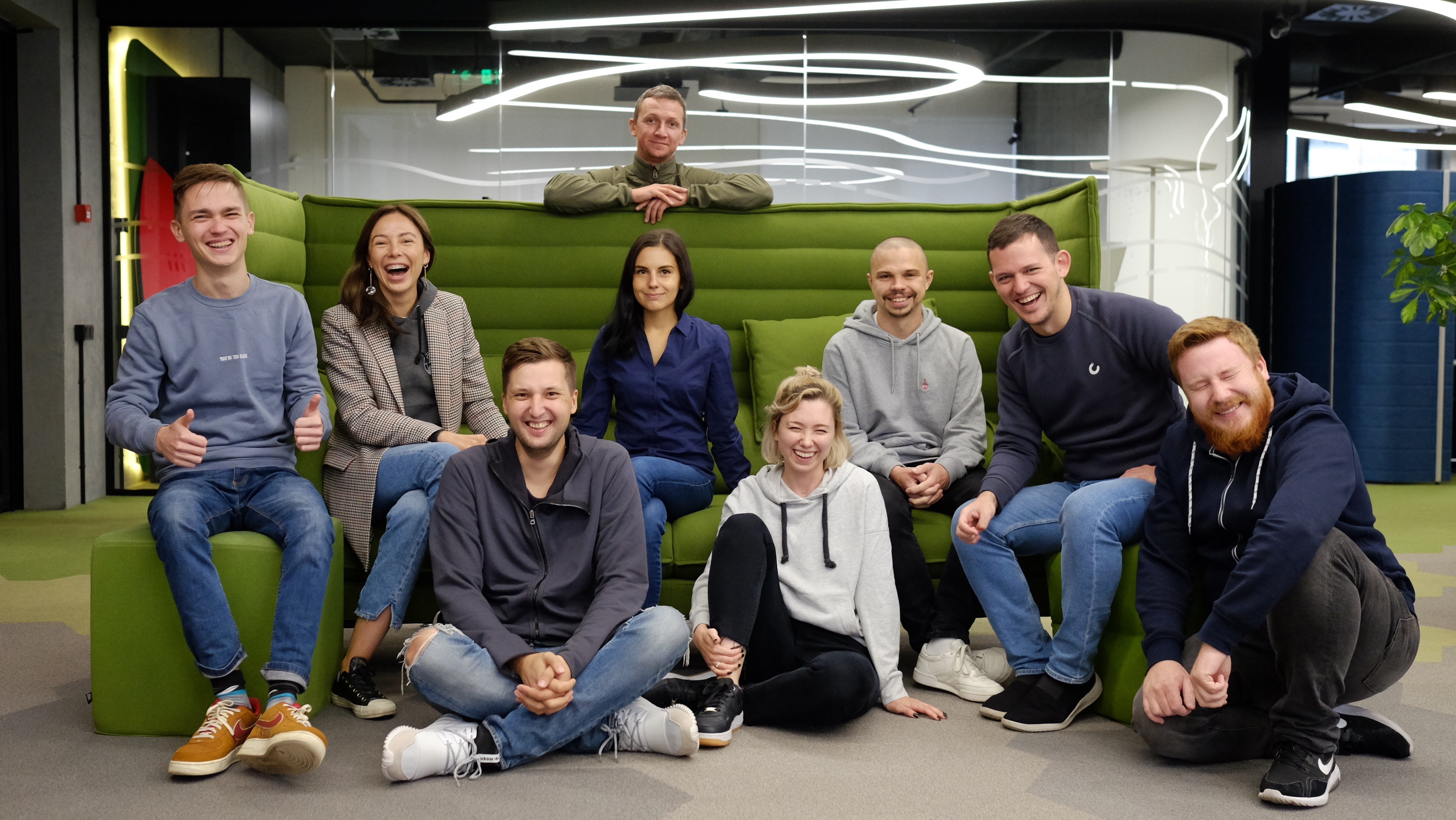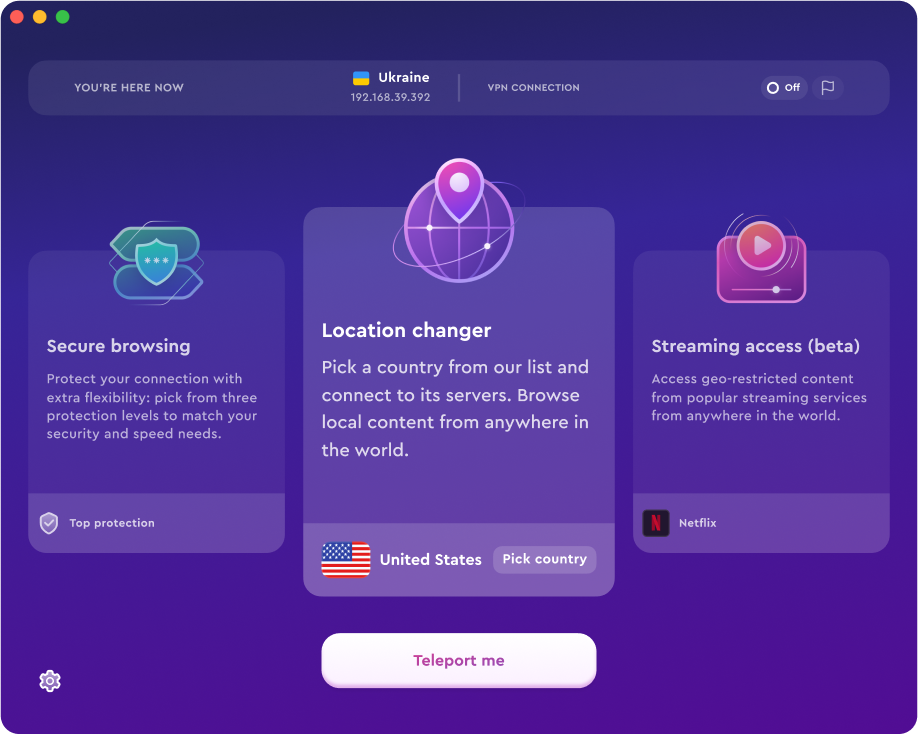The quest of a Ukraine VPN to keep people connected during a war
"It's not just business, it's our mission," says ClearVPN

Sign up for breaking news, reviews, opinion, top tech deals, and more.
You are now subscribed
Your newsletter sign-up was successful
It's been two years since the first Russian tanks broke through the Ukrainian border, marking the beginning of the war on February 24, 2022. A conflict, perhaps, a little different to ones we've seen before, where the cyberspace has turned out to be a prolific battle ground.
Major DDoS and malware attacks have been shaking both fronts since then. Yet, for Ukrainian cybersecurity firms like MacPaw, the cyberwar began way before Russian bombs were first dropped. "Cyberattacks have intensified since the full scale invasion began, but that's nothing really new for us. We come prepared, we know what to do," Artem Bovtiukh, IT Security Engineer at MacPaw, told me.
As Russia took control over the internet of occupied territories, the real challenge has been to help people living in these areas access the open internet. The work of the VPN service the company launched in March 2023, ClearVPN, then became crucial.
Fighting against Russian censorship
"Giving options to our citizens to access the free internet in occupied territories is not just business, it's our mission and we try to do everything we can," Ivan Ablamskyi, Lead Product Manager of ClearVPN at MacPaw, told me.
Short for virtual private network, a VPN is a crucial tool to bypass geo-restrictions due to its IP address spoofing capabilities. At the same time, it also encrypts internet connections to deliver better anonymity online. Both of these skills are crucial when browsing under a heavily controlled and restricted web like the one the Kremlin is infamous for.
The issue here is that Russian authorities have been working hard to prevent its citizens from using a VPN to access blocked websites and platforms. Despite MacPaw's withdrawal from the Russian market when the war began, ClearVPN had to face this challenge when the Kremlin started to seize control of the internet in these areas.
Due to a lack of reliable resources, Ablamskyi explained that it wasn't easy to understand what the problems were with the infrastructure. The team had to rely on their users feedback to work around their needs as issues arise.
"VPN censorship is a cat and mouse game," he said. "Engineers create new technology to avoid censorship and then censors create new tech to fight VPNs. It's a continuous process and all results depend on the user feedback."

The ClearVPN team is actively working towards a solution, though. During the last 12 months, its software engineers have been developing an in-house alternative VPN protocol for those living in occupied areas. Despite not being fully released at the time of writing, people from these territories have already been able to harness its power.
"Technically it's very simple, but it's combination of different technologies," Ablamskyi told me.
So, while it's based on the speedy and secure WireGuard protocol, it also uses OpenVPN codes as this supports VPN obfuscation technology. It also adds SFTP proxy protections to better mask the VPN traffic as regular traffic.
The main idea here is to evade censors control as much as possible, from all fronts. On this point, Ablamskyi said: "All major censorship-fighting techniques are based on masking VPN data to make it looks like a regular web traffic. But, from the other side, we have to protect our servers by making a chain of server connections. Because a simple way [to block VPNs] is also banning a list of IP address, and that would be all."
The plan is, nonetheless, to refine the protocol performance to make it widely available for all users. In fact, only roughly 10% of ClearVPN users are based in Ukraine. Also, online censorship is a growing problem everywhere, with Russia being just one of the many perpetrators.

Another central focus for the team has been delivering the simplest VPN experience possible.
While the first iteration of ClearVPN dates back to 2020, the team decided to revamp the software to align with the new needs of users living in conflict areas. ClearVPN 2 was then officially launched in March last year with the aim of setting itself apart from similar services thanks to its great simplicity.
As the image above shows, you just have to press a button to choose your preferred use case (or shortcut, as the company calls it) between Secure Browsing, Location Changer and Streaming. MacPaw's developers have already set these up for you.
After almost a year, Ablamskyi explained that the plan is to make this experience even more straightforward. This is because the team has observed that most ClearVPN users simply pick the first option, especially on mobile. For the new update, the team plans to focus on an automatic secure location option to help everyone get the most security from the app.
"Our main idea is making a simple product for non-tech people," Ablamskyi told me, adding that often this pursuit for simplicity isn't fully understood by the wider industry. "That's a big challenge for us."
What's next?
With the war not giving any signs that it's letting up any time soon, and censorship level rising everywhere in the world, the ClearVPN team certainly still have a lot of work to do.
Among the priorities, there's also the post-quantum era getting closer, bringing with it the prospect of making today's cryptography obsolete. Big players in the VPN industry like ExpressVPN, PureVPN and Mullvad have already begun adding quantum-resistant protections to get ready for this challenge. That's because, despite Q-Day being a long way off, bad actors have already implemented so-called "store now, decrypt later" attacks which pose a real threat to our data today.
Ablamskyi said that he's looking closely at new threats and trends across the industry, with post-quantum protections being on the ClearVPN product road map as well. However, he believes security software is only one part of the solution.
"Our tools' focus is helping you to protect your data, but they cannot shield you from every single potential risk," he said. "Critical thinking is also needed because there's no single tool that can fully protect you."
Sign up to the TechRadar Pro newsletter to get all the top news, opinion, features and guidance your business needs to succeed!

Chiara is a multimedia journalist committed to covering stories to help promote the rights and denounce the abuses of the digital side of life – wherever cybersecurity, markets, and politics tangle up. She believes an open, uncensored, and private internet is a basic human need and wants to use her knowledge of VPNs to help readers take back control. She writes news, interviews, and analysis on data privacy, online censorship, digital rights, tech policies, and security software, with a special focus on VPNs, for TechRadar and TechRadar Pro. Got a story, tip-off, or something tech-interesting to say? Reach out to chiara.castro@futurenet.com